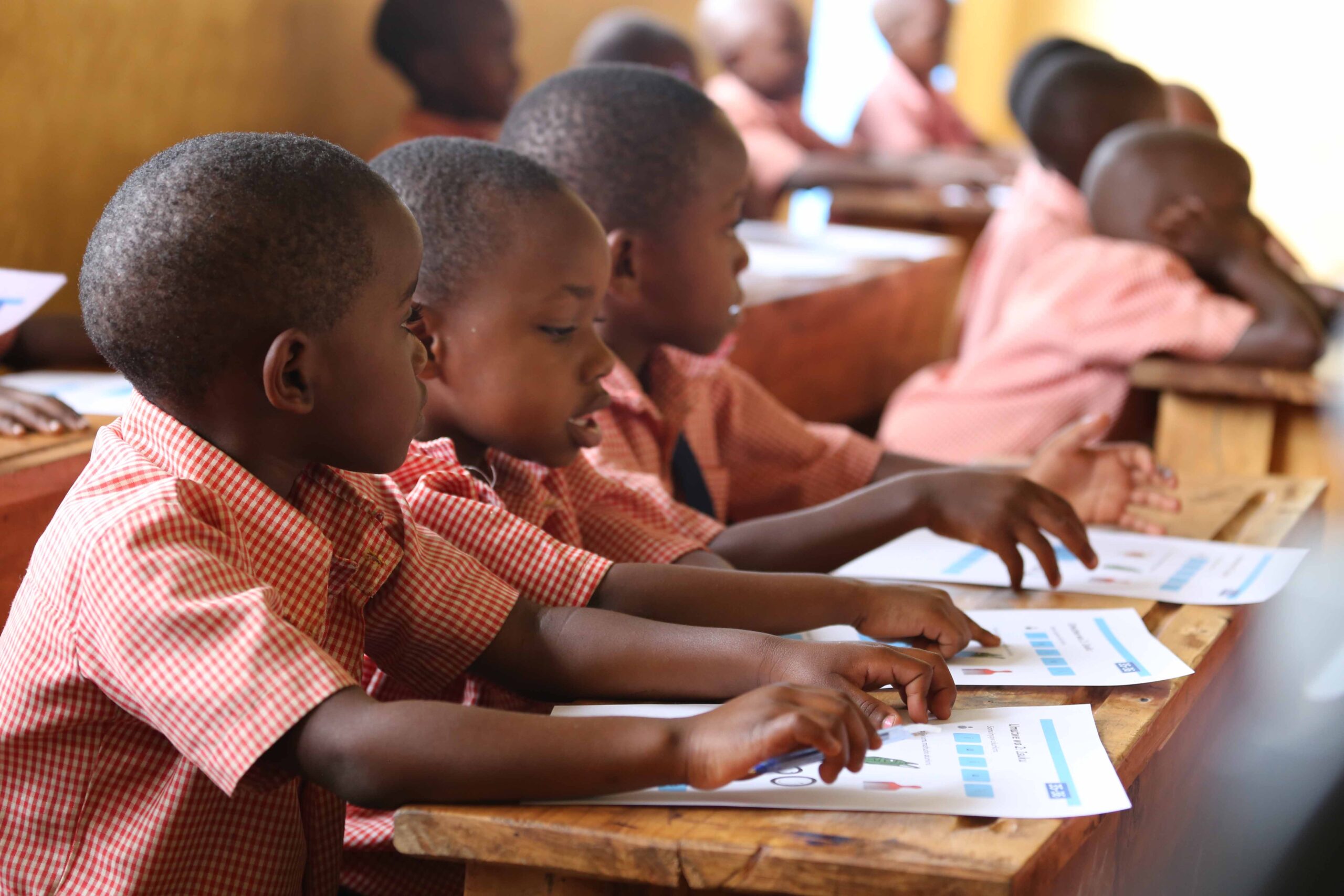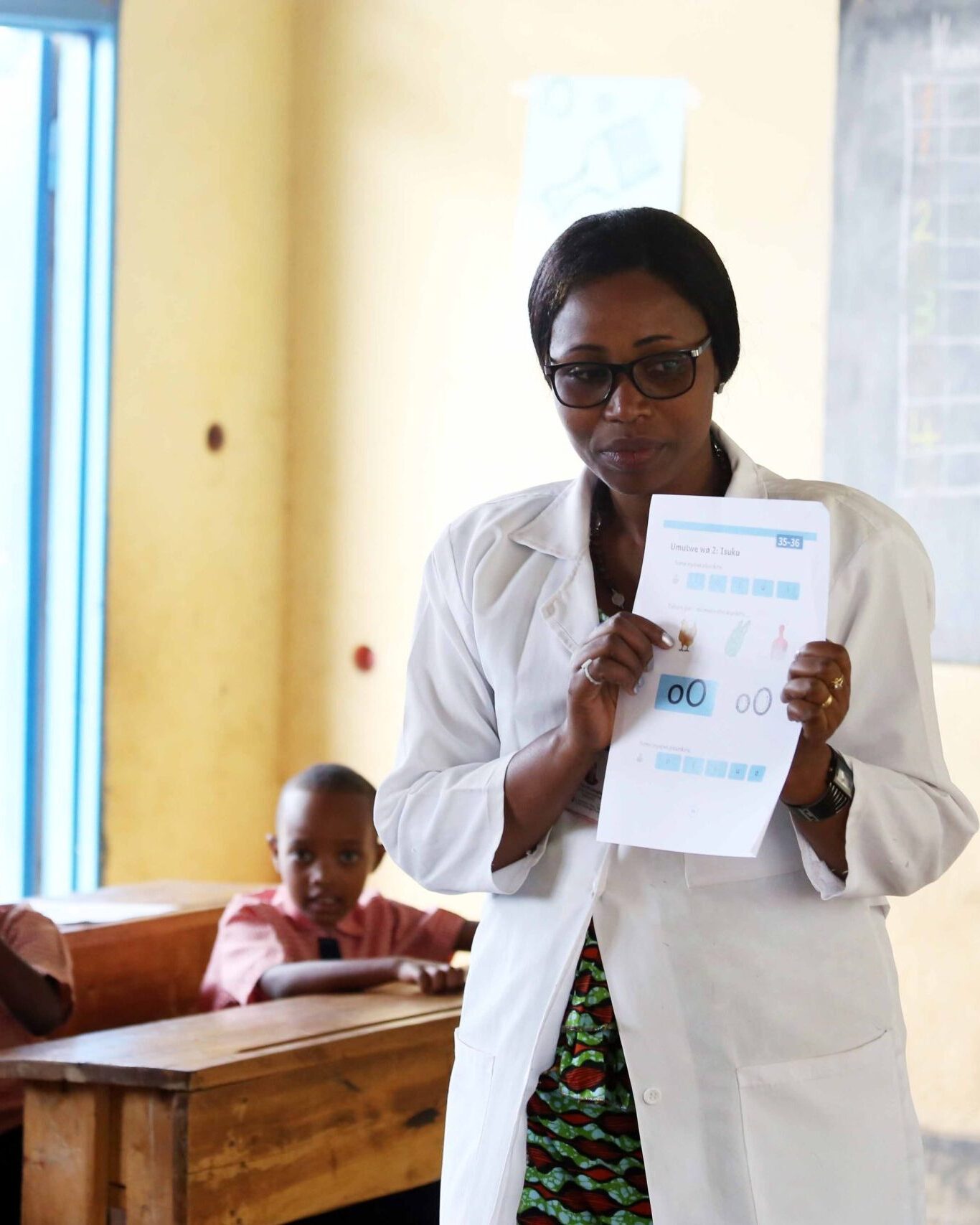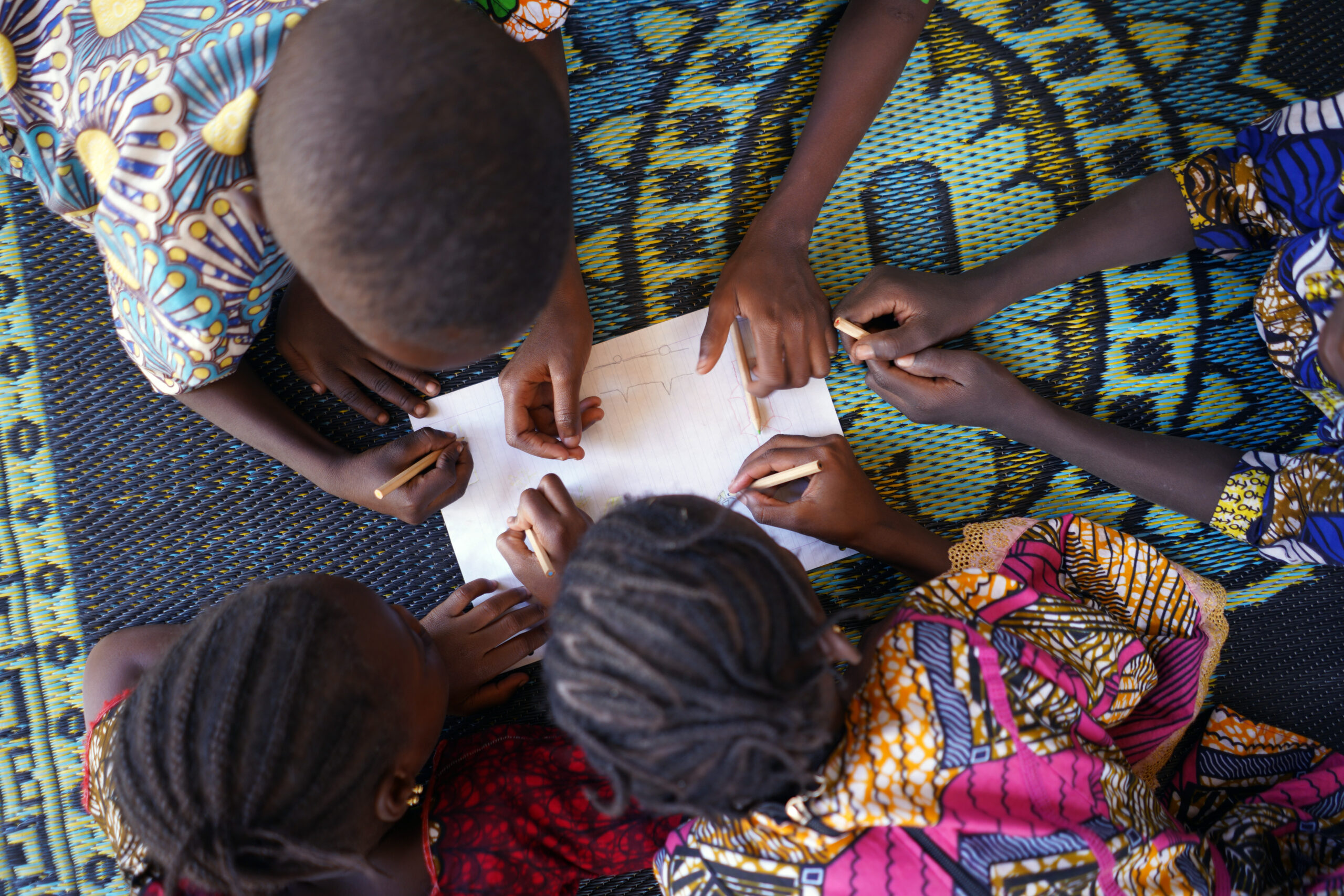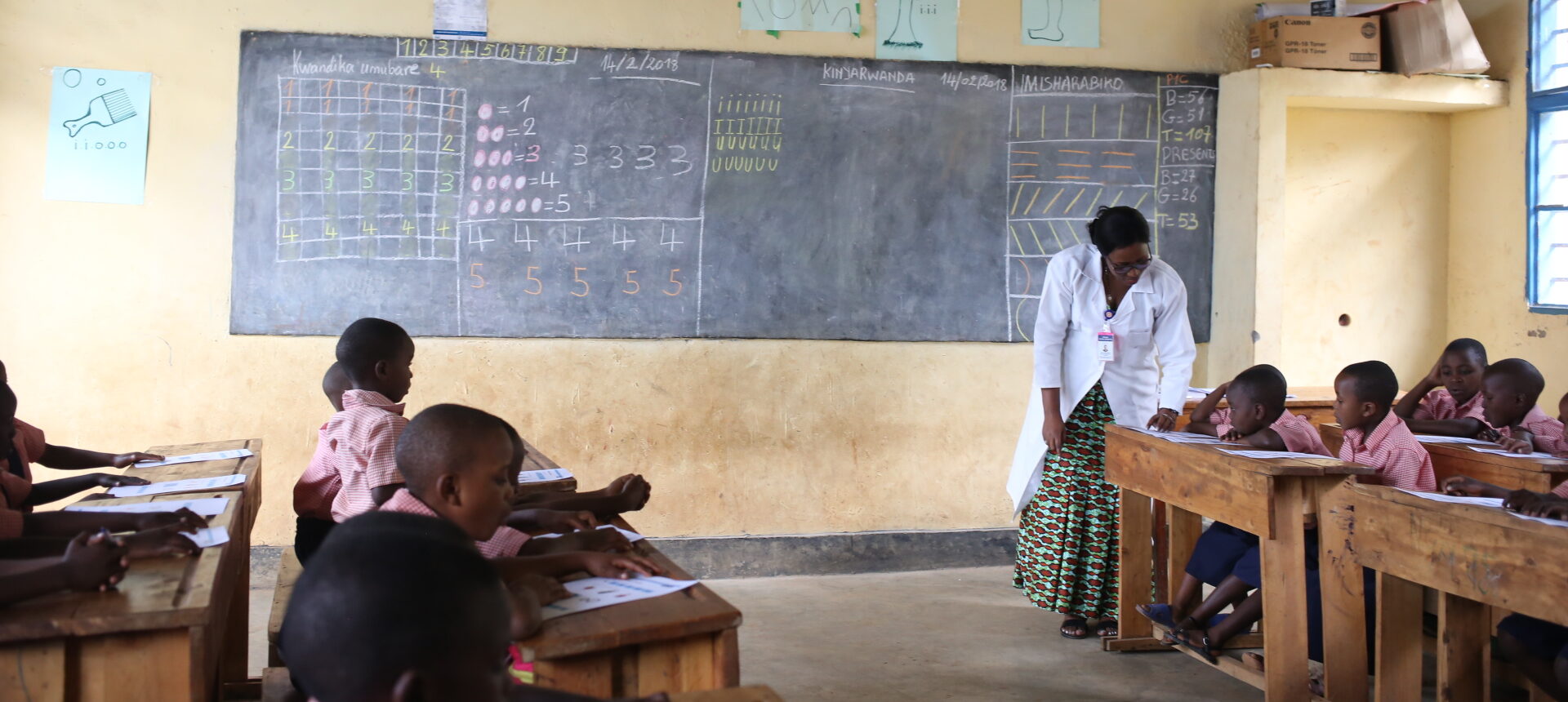Case Study
Strengthening Rwanda’s Reading Foundations at Scale
Improving Early Grade Literacy Requires Systems-Level Change
Instructional Design and Foundational Learning

The Challenge
Rwanda faced significant challenges in teaching children to read. A significant portion of students were not mastering basic reading skills, with many scoring zero on reading assessments, particularly in the early grades. This underperformance was attributed to a range of factors, including learning difficulties, disabilities, and systemic issues such as limited instructional time and inadequate teacher preparation.Our Solution
Strengthening Literacy through Materials, Training, Leadership, and Data
Chemonics focused on systemic interventions in the following key areas:
- Designing and Developing Teaching and Learning Materials: Chemonics designed textbooks and teachers guides, guided local language authors on how to create engaging texts for young readers, and developed leveling guidelines for reading materials to ensure that children of all abilities had access to texts.
- Designing and Delivering Standards-Based Professional Development: We enhanced early grade Kinyarwanda reading instruction by developing teaching standards focused on phonological awareness, phonics, fluency, vocabulary, comprehension, writing, and gender-responsive and inclusive instruction.
- Improved Instructional Leadership and Coaching Capacity. We delivered training on school leadership, coaching techniques, and leading communities of practice. We created coaching protocols and tools for documenting visits, ensuring systematic feedback and improvement.
- Integrating a data-informed approach. We developed a Local Early Grade Reading Assessment (LEGRA) system to measure students’ literacy progress. This involved drafting benchmarks, creating assessment tools, and conducting a three-stage training program for education officers, school leaders, and teachers. The tools were pilot tested, refined, and rolled out nationally. Data from LEGRA informed instructional practices and supported targeted interventions and the school-level.


The Impact
Improved Early Grade Reading Outcomes through Strategic Interventions
- Every Child has a Textbook: Rwanda achieved a 1:1 textbook-to-pupil ratio, allowing more children more time with text. Chemonics developed and distributed nearly 6,500,000 teaching and learning materials to schools.
- Enhanced Teacher Skills: We trained over 18,000 teachers, significantly increasing the use of evidence-based instruction from 20% at the start of the intervention to 78% at the end of the engagement.
- Increased Reading Outcomes: Third grade students showed significant improvement reading skills. For example, in 2018 just 4% of students met oral fluency expectations, but by 2021 29% exceeded expectations. Reading comprehension also increased by 4 percentage points during this time frame. These improvements may seem modest, but they are some of the best across Africa
By leveraging expertise in early grade reading, teacher training, school leadership, and inclusive education, the Chemonics demonstrated how strategic interventions can lead to significant improvements in early grade reading outcomes in Rwanda.
